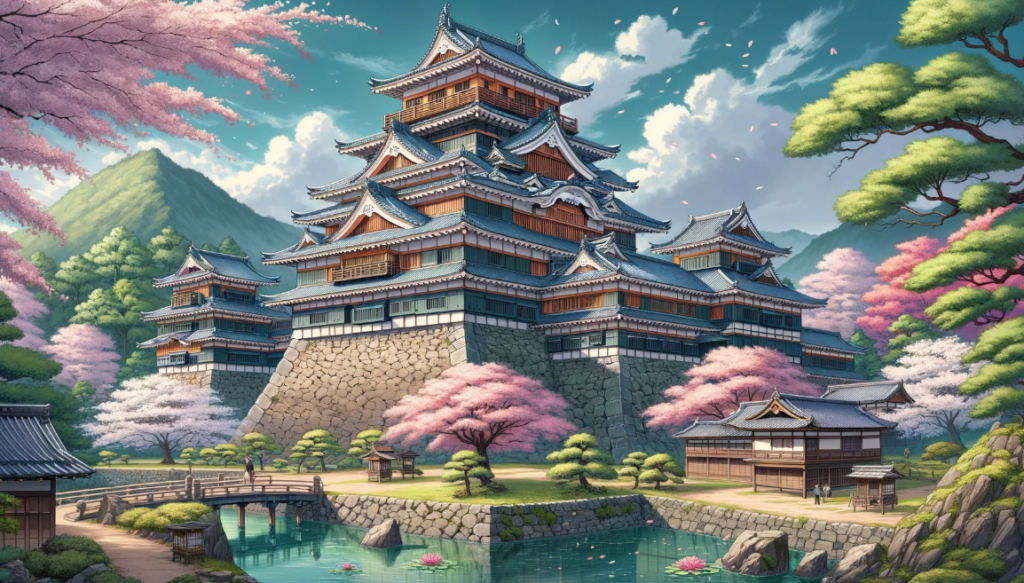
Lesson 19 Castles
Topic Question: What are the historical and cultural significance of Japanese castles?
No. 1
First, try answering the question yourself.
The instructor will provide advice on vocabulary, grammar, and expression corrections.
Sample Answer – Let’s read aloud – The instructor will check your pronunciation and accent.
Japanese castles, known as “shiro,” are not only architectural marvels but also symbols of Japan’s feudal history and cultural heritage. Built primarily during the Sengoku period, these castles served as military fortresses, residences for lords and samurai, and centers of government. Their strategic locations and construction techniques reflect the ingenuity of Japanese warfare and defense. Beyond their military function, castles like Himeji and Matsumoto are treasured for their aesthetic beauty, incorporating elements of traditional Japanese garden design and art. They play a crucial role in festivals and local traditions, acting as enduring symbols of the regions they reside in. Today, these castles stand as monuments to Japan’s rich history, attracting tourists and serving as sites of cultural education and pride.
No. 2
5 Words to Learn and Their Meanings – Pronounce the Words Correctly (Pronunciation Training) + Make Sentences Using the Words Instantly
- Feudal (封建的な): Relating to the social system in medieval Europe, where people worked and fought for nobles who gave them protection and land in return.
The feudal system structured much of historical society and politics.
- Sengoku period (戦国時代): A period in Japanese history marked by social upheaval, political intrigue, and nearly constant military conflict.
The Sengoku period was a time of great change and is a popular setting for historical dramas.
- Strategic (戦略的な): Relating to the identification of long-term or overall aims and interests and the means of achieving them.
Choosing a strategic location for the new office was crucial for the business.
- Aesthetic (美的な): Concerned with beauty or the appreciation of beauty.
The aesthetic appeal of the garden makes it a peaceful place to visit.
- Enduring (長持ちする): Lasting over a period of time; durable.
The enduring legacy of classical literature continues to influence modern writers.
No. 3
Key Idiom and Example Sentences – Pronounce the Key Idiom Correctly (Pronunciation Training) + Make Sentences Using the Key Idiom Instantly
“Stand the test of time” (時の試練に耐える)
The principles laid out in the constitution have stood the test of time.
No. 4
Discussion and Exchange of Opinions on the Sample Answer
Instructor: How do you think the preservation of Japanese castles contributes to contemporary Japanese culture and identity? Are there parallels in how other cultures maintain their historical sites?
Student: [Opinions of students]
No. 5
Free Discussion on the topic
Let’s discuss the role of historical structures in education and national identity. How do historical sites in your country contribute to cultural pride and learning? What measures are in place to preserve these sites for future generations?







